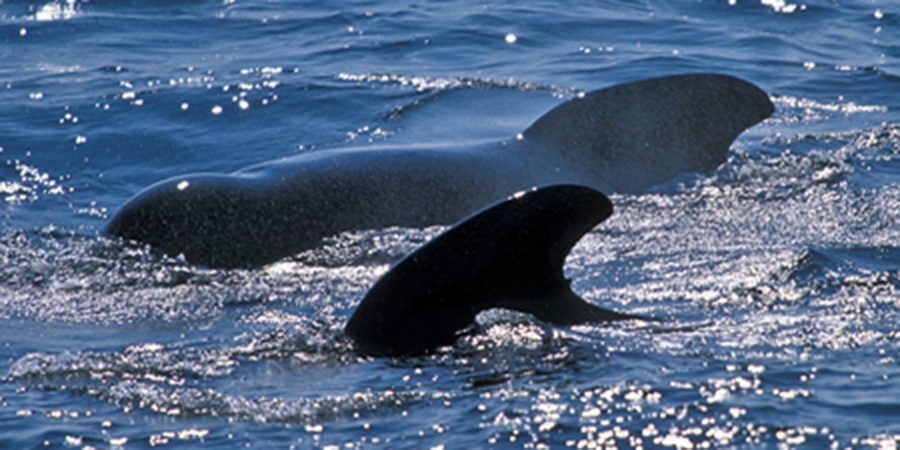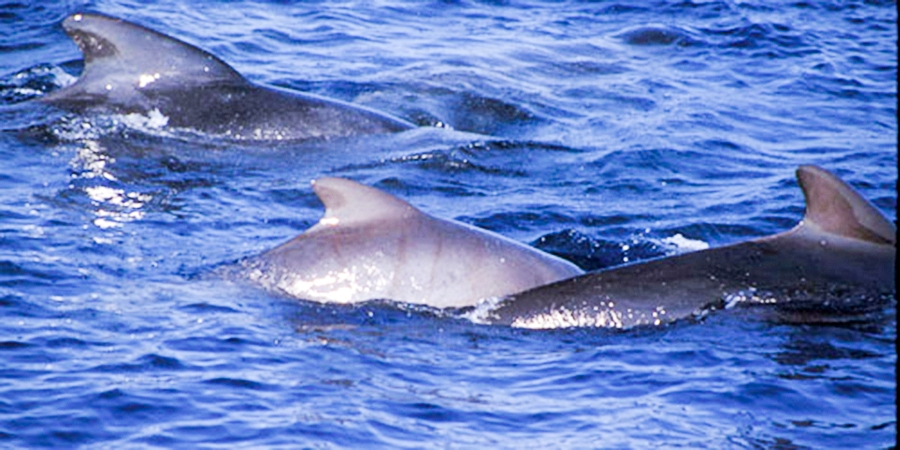PILOT WHALES
(Globicephala melas, formerly “G. melaena”)
Another species of toothed whale that is sighted with some regularity is the Pilot Whale (actually, we see the “Long-finned” Pilot whale … another very similar species called the “Short-finned” Pilot whale (G. macrorhynchus) inhabits the warmer waters south of Cape Hatteras, NC).
While not nearly as common as the White-sided Dolphin, Pilot whales are seen nearly every year, usually in the late summer and throughout the fall. Pilot Whales can be recognized by their larger size (larger than White-sided Dolphins), more robust body, bigger dorsal fins with a wider base (especially in males), and by their nearly all-black coloration.
Pilot Whales, more than any other species, are known for their mass strandings in which many individuals in a pod, or even the entire pod, will “beach” themselves on dry land. No one knows for sure why whales may do this, or even if it is accidental or a purposeful effort on the part of the whales.
Possible explanations for strandings include:
- The whales may be sick or infested with parasites.
- Their “internal compass” may be malfunctioning due to pollutants or naturally occurring ionic minerals in the water. Whales (as well as birds, lobsters, and even humans) possess small amounts of a metal in their brains and magnetite is affected by magnetic fields. Thus metal serves as a natural compass that “reads” the magnetic field of the Earth and allows animals to navigate across vast areas of featureless sea in the same way that mariners use the compass onboard a ship. Man-made pollutants, as well as naturally occurring ionic minerals dissolved in sea water, may alter small regions of the Earth’s magnetic field and cause these whales to veer off in a “wrong” direction that sends them towards dry land. Even after the whales are pushed back out to sea by well-meaning humans, they still are unable to overcome the urge to follow their internal compass and re-beach themselves… often with fatal consequences.
- Finally, Whales may simply be confused and that may lead to a mass stranding. Long-finned Pilot Whales are, by nature, off-shore creatures that may become confused or disoriented when they follow prey into coastal areas… especially marshes that are drained of water at low tide. Living in the open sea, these animals may not be familiar with the concept of tides creating dry land where there was open sea just a few hours earlier and this may cause the whales to panic.



